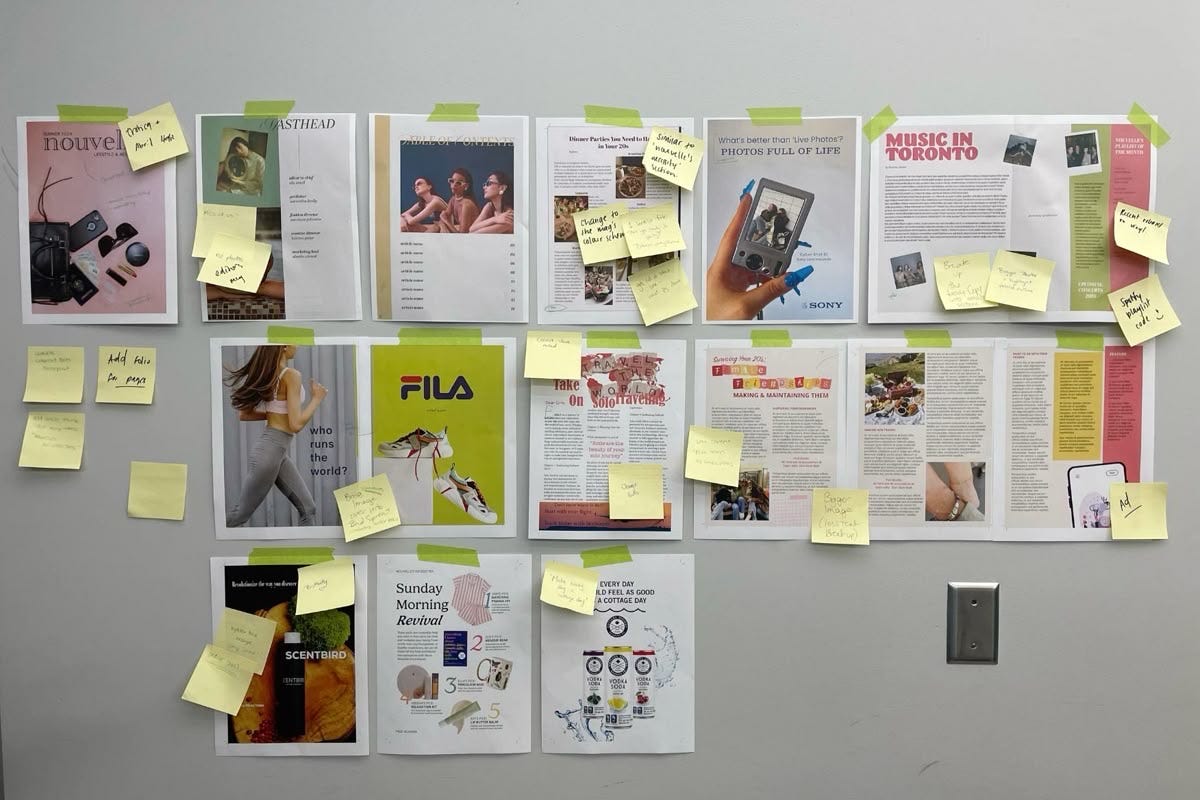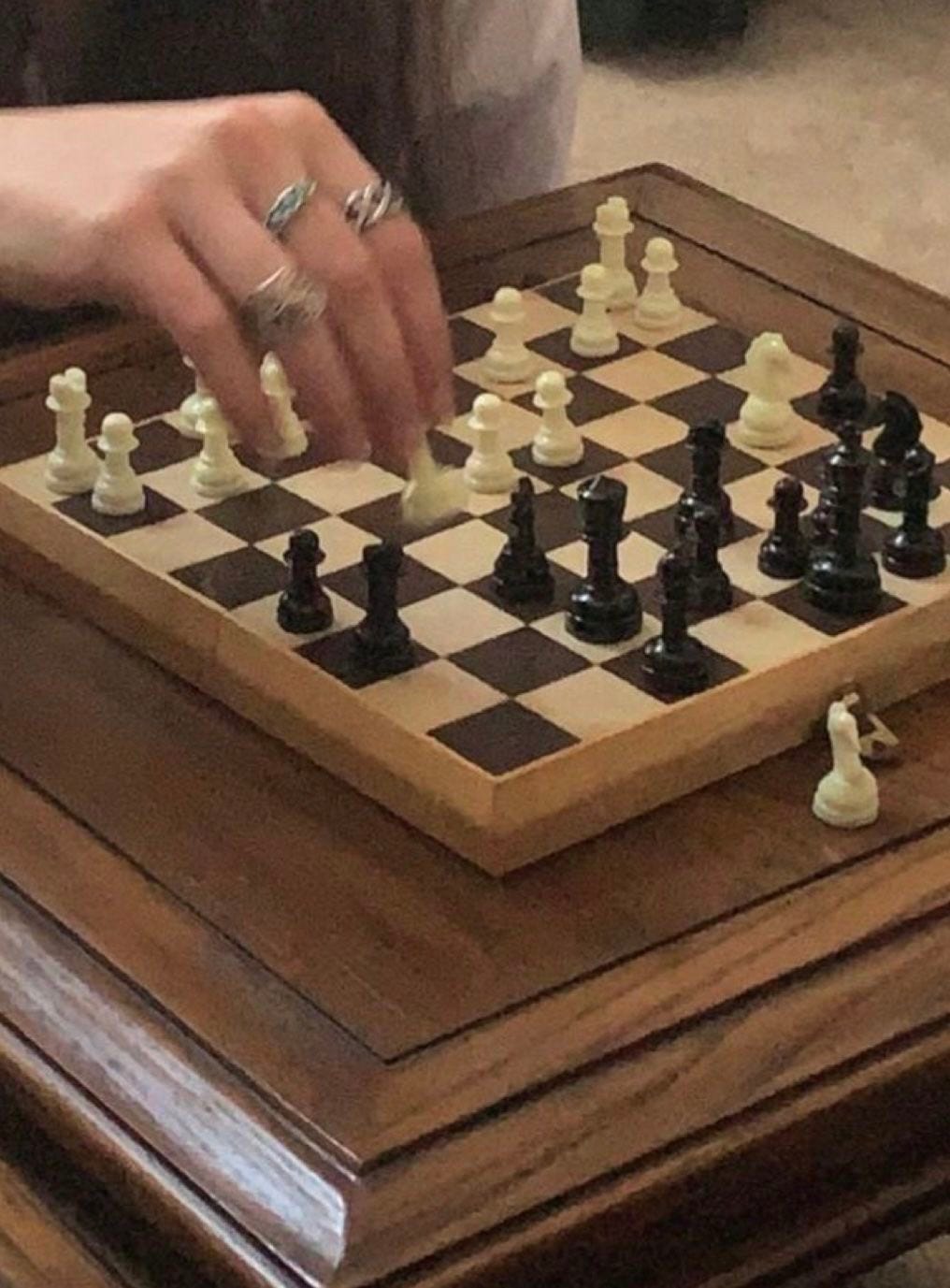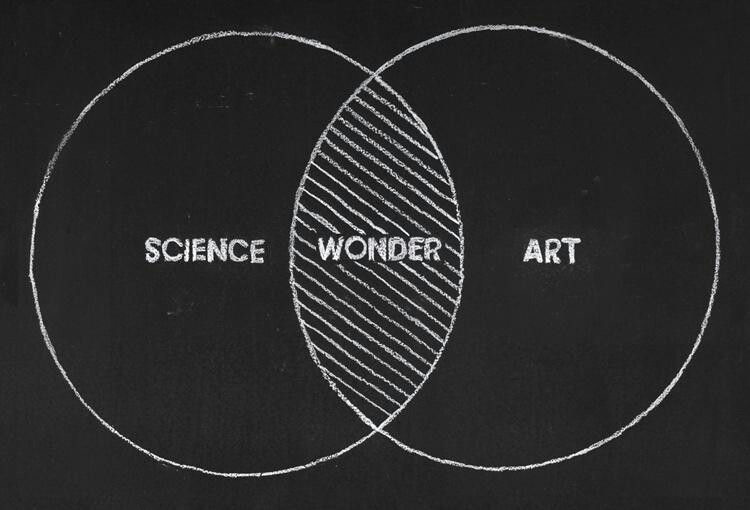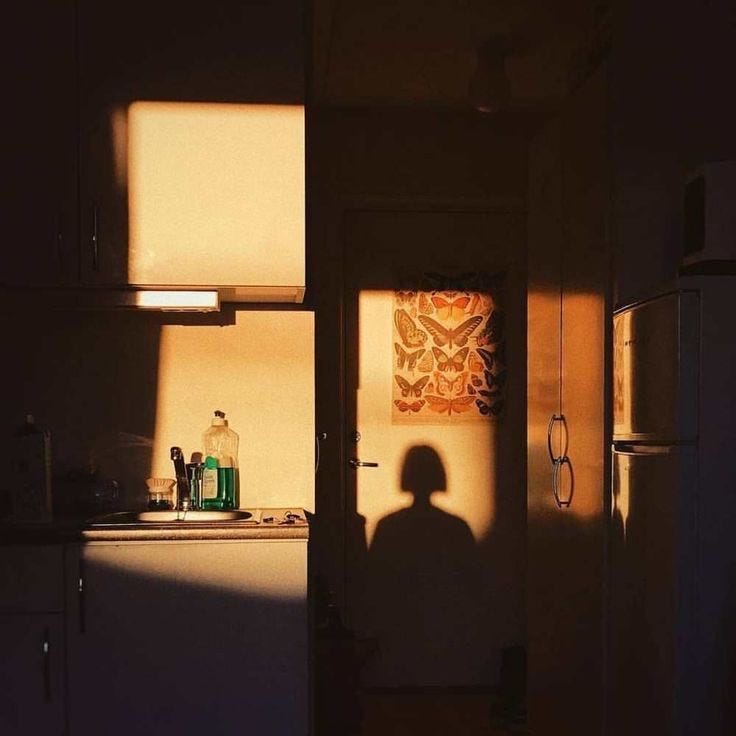i knew i had a palette brain the moment i opened my laptop and saw the five tabs i had open: one was a photo of a sunlit french balcony, one was a pinterest board called “soft life palette,” another was an article on the psychology of nostalgia, one was a half-written paragraph that started with “there’s something about lavender that makes people trust you,” and the last one was a playlist i was building for no one in particular, titled delicate 3 a.m. feelings.
it was 11 a.m. on a thursday and i hadn’t done anything remotely productive. but the mood board? immaculate. the vibes? unmatched.
meanwhile, my husband, god bless his structured, linear, bullet-pointed soul, had already sent three emails, paid two bills, and organized our travel itinerary in a spreadsheet that included color-coded tabs for transportation, lodging, and estimated walking times. walking times.
this was the moment i truly understood: we’re operating on two completely different brain softwares. he runs on excel. i run on watercolors.
for the longest time, i thought my way of thinking was wrong. i admired the spreadsheet brains—those efficient, decisive, plan-everything-three-steps-ahead types. the people who never miss a deadline, who carry highlighters in their bags “just in case,” and who know what they’re doing on a random tuesday two months from now. they’re the ones who build the world, hold it together. you want a spreadsheet brain on your team during a crisis. they’ve got timelines, backup plans, and snacks.
palette brains, on the other hand, tend to float. we think in moods, in metaphors, in colors. we follow the feeling, not the calendar. when faced with a decision, we ask, how does it feel? instead of what’s the most efficient option? we’re ruled by curiosity, often derailed by beauty, and frequently lose track of time because we fell down a rabbit hole of “how to arrange bread artistically.” and yet, despite our lack of structure, we’re not aimless. we’re deeply attuned to aesthetics, ideas, and emotional undercurrents. we may not be linear, but we’re layered.
i used to resent this about myself. in school, the spreadsheet kids were praised for their organization and structure, while i was quietly shamed for being “messy” or “inconsistent.” i wrote my best essays the night before they were due, fueled by panic and late-night bursts of clarity. i needed mood to function. structure suffocated me. i never liked outlining; it felt like putting creativity in a cage. the process of arriving at something was never neat for me—it was jagged and sprawling and full of detours. i’d start a project with a poem, detour into a documentary, get emotionally invested in a historical footnote, and somehow end up with a concept i couldn’t explain until it was done.
over time, i began to see that these two ways of thinking—palette and spreadsheet—aren’t just styles. they’re entire ways of moving through the world. and the tension between them is everywhere. in our homes, our partnerships, our workplaces. the spreadsheet brain values clarity, order, and logic. it asks: what’s the goal? what’s the plan? what are the steps to get there? the palette brain values meaning, texture, and resonance. it asks: what does this evoke? what’s the emotional temperature? what’s the story here?
this isn’t to say people fall neatly into one category—most of us are some blend of the two. but usually, one leads. and whichever one leads becomes the way we understand ourselves—and often, the way we’re misunderstood.
psychologists have written about this dichotomy in different ways. some refer to it as left-brain vs right-brain thinking (though that’s a bit outdated), others frame it as analytical vs creative processing. daniel kahneman famously referred to “system 1” (intuitive, emotional) and “system 2” (deliberate, logical) thinking. in all versions, there’s a recognition that humans toggle between these modes. but culture tends to reward the spreadsheet.
especially in capitalist, productivity-obsessed societies, efficiency is king. feelings are fine, sure, but only if they’re packaged in digestible, instagrammable formats. we like creativity that behaves. not the kind that changes its mind every five minutes. we want innovation, but only if it fits the budget.
and yet, palette brains have their own quiet power. we’re the ones who connect dots that aren’t obviously connected. we notice when the lighting in a room feels off, when the energy in a conversation shifts. we bring mood and magic to otherwise mechanical things. we may not be the first to finish the task, but we’re the ones who ask, is this the right task? we see around corners. we sense undercurrents. we turn spreadsheets into stories.
the older i get, the more i realize how important both brains are—and how often one is taught to dominate the other. in the workplace, i learned to mimic a spreadsheet brain. i made lists. i tracked metrics. i acted like i knew what i was doing. but it never felt natural. my real strengths lay in reading between lines, noticing patterns others missed, and designing moments that felt human. i used to downplay those skills because they weren’t easily quantifiable. but now, i see them as my superpower.
still, living as a palette brain in a spreadsheet world is not without its challenges. it’s hard to measure intuition. it’s hard to justify time spent thinking or dreaming or wondering. it’s hard to explain why something doesn’t feel right when everyone else is saying it makes perfect sense.
i’ve learned to love the slowness that comes with being this way. the non-linearity. the fact that i don’t always have a five-year plan but i do have a deeply developed inner world. i’ve learned to defend the value of vibe. of gut feelings. of designing your life not for optimization, but for beauty and meaning.
and more than anything, i’ve learned that while palette brains may not build the perfect system, we make things worth remembering. we create the atmosphere. the sensory experience. we make life feel like something you want to live, not just something you want to win.
sometimes, i wish i had more of a spreadsheet brain—especially when taxes are due or when i’ve accidentally quadruple-booked myself because i trusted my memory instead of my calendar. but mostly, i’m learning to work with the way i’m wired. i’m learning to partner my palette brain with systems that don’t kill the magic. i’m learning to find peace in the messiness of being someone who feels their way through the world.
and if you, too, feel like your brain is more poem than checklist—if you find yourself overwhelmed by structure but alive in story, if your notes app looks like a tiny art museum, if you’ve ever cried because a song captured a feeling you couldn’t explain—just know you’re not broken. you’re not scattered. you’re simply working in a medium that doesn’t always translate in columns and rows.
but make no mistake—what you create matters. your brain isn’t less valuable. it’s just softer, and that softness is necessary in a world obsessed with sharpness.
so the key isn’t trying to become someone you’re not, but learning how to bring your colors into the room without apology. even if the room was built with spreadsheets. because while the spreadsheet brain might organize the table, the palette brain? we make it worth sitting at.
before i end this essay, here’s a fun checklist for you to to go through and see which one suits you more:
palette brain signs:
you create playlists for moods that don’t have names
your desktop has 37 tabs open and they all spark joy
you write paragraphs in your head during conversations
you choose books by their cover—and are rarely disappointed
you feel the need to light a candle before doing anything
you follow the vibe, not the plan
spreadsheet brain signs:
color-coded calendars soothe your soul
you always know what day it is
your groceries are grouped by aisle
you’ve used the words “realistically speaking” unironically
you track habits with alarming consistency
when someone says “vibe,” you ask for clarification
journal prompts
what makes your brain feel alive, not just organized?
do you ever feel pressure to think differently than you do? where does that come from?
what would it look like to honor the way your brain works, rather than trying to fix it?
who in your life has a different brain than you—and how do they balance or challenge you?













Beautifully written! However, I don’t think we are necessarily this or that, but we can be both. I definitely think in moods, in metaphors, in color, I’m ruled by curiosity, derailed by beauty, etc, but I’m also tend to be efficient, decisive, I never miss a deadline, and I carry highlighters in my bags. ☺️
This is so beautifully put together. I'm realising as I get older that I'm absolutely a mix of both sides -- leaning more into the spreadsheet brain for my personal mental clarity, but seemingly valuing my palette brain more and more as I try to slow down in a world that puts so much stress and value on getting to the next "big thing" quickly.